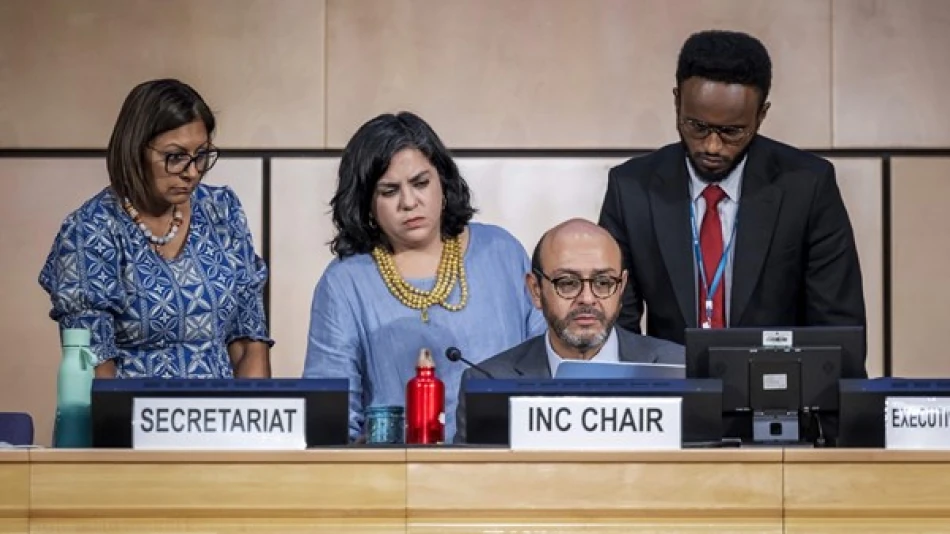
Geneva Talks Fail to Reach Treaty Curbing Plastic Pollution Menace
Global Plastic Pollution Treaty Talks Collapse After Six Failed Rounds
International negotiations to establish the world's first legally binding treaty on plastic pollution have collapsed in Geneva, marking another setback in the three-year effort to address one of the planet's most pressing environmental crises. Despite marathon overnight sessions and last-minute compromises, 185 countries failed to bridge fundamental disagreements over whether to limit plastic production or focus solely on waste management.
The Core Divide That Derailed Negotiations
The breakdown reflects a familiar pattern in global environmental diplomacy: producer nations defending industrial interests versus countries demanding systemic change. Oil-producing states and major plastic manufacturers have consistently pushed for solutions centered on recycling and waste management, while environmental advocates and vulnerable nations demand caps on plastic production itself.
This divide has proven insurmountable across six negotiating rounds spanning three years, with the latest Geneva talks extending past their Thursday deadline into Friday morning before negotiators acknowledged defeat.
Last-Minute Diplomatic Scramble
Chief negotiator Luis Vayas Valdivieso attempted to salvage the talks by presenting a compromise draft on Wednesday, only to see it rejected by all parties. A revised version submitted after midnight Thursday also failed to gain traction during closed-door sessions among lead negotiators.
Cuba's delegation captured the frustration: "We have lost a historic opportunity, but we must move forward and act urgently. The planet and current and future generations need this treaty."
What This Means for Global Environmental Policy
The failure carries significant implications beyond plastic pollution. It signals the continued difficulty of achieving binding international environmental agreements when economic interests clash with ecological necessity—a dynamic that has plagued climate negotiations for decades.
Unlike the Montreal Protocol's success in addressing ozone depletion, plastic pollution involves more complex global supply chains and economic dependencies. The petrochemical industry's integration with national economies, particularly in oil-producing regions, creates resistance patterns similar to those seen in fossil fuel negotiations.
Regional Positions and Future Prospects
The European Union characterized the latest draft as "a good basis for resuming negotiations," suggesting Brussels sees potential for compromise. South Africa emphasized that talks "cannot end here," while several nations have already called for a seventh negotiating round.
However, the timeline for resumed talks remains unclear, raising questions about momentum and political will. Each delay allows plastic pollution to worsen—ocean plastic waste is projected to triple by 2040 without intervention.
Economic Stakes Behind the Stalemate
The negotiation failure reflects massive economic interests at stake. Global plastic production exceeds 400 million tons annually, supporting industries from packaging to automotive manufacturing. Production caps would require fundamental shifts in business models and supply chains, explaining the fierce resistance from producer nations.
Conversely, countries bearing the brunt of plastic pollution—often developing nations receiving waste exports—face mounting cleanup costs and environmental damage. This economic asymmetry mirrors other global environmental challenges where pollution sources and impacts are geographically separated.
The collapse suggests that voluntary corporate initiatives and national policies may continue driving plastic reduction efforts in the absence of binding international frameworks, potentially creating a patchwork of regulations that could complicate global trade and environmental effectiveness.
Most Viewed News

 Layla Al Mansoori
Layla Al Mansoori






